Why you can trust Tom's Hardware
Intel Alder Lake Core i7-12700K Power Consumption and Efficiency
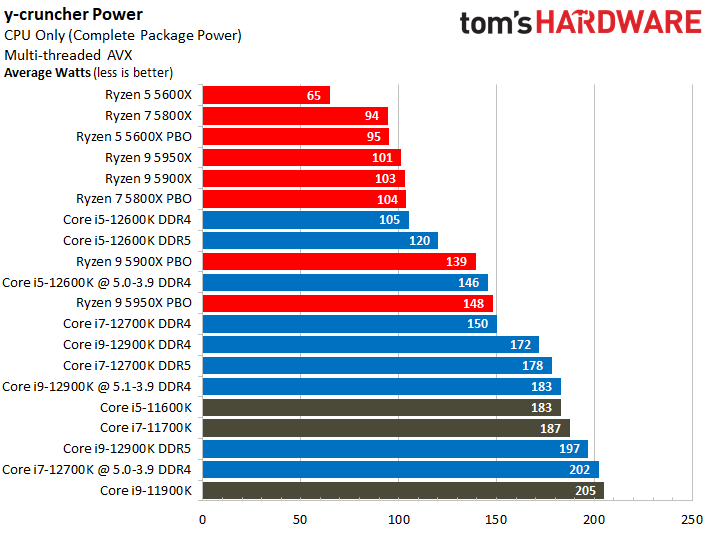

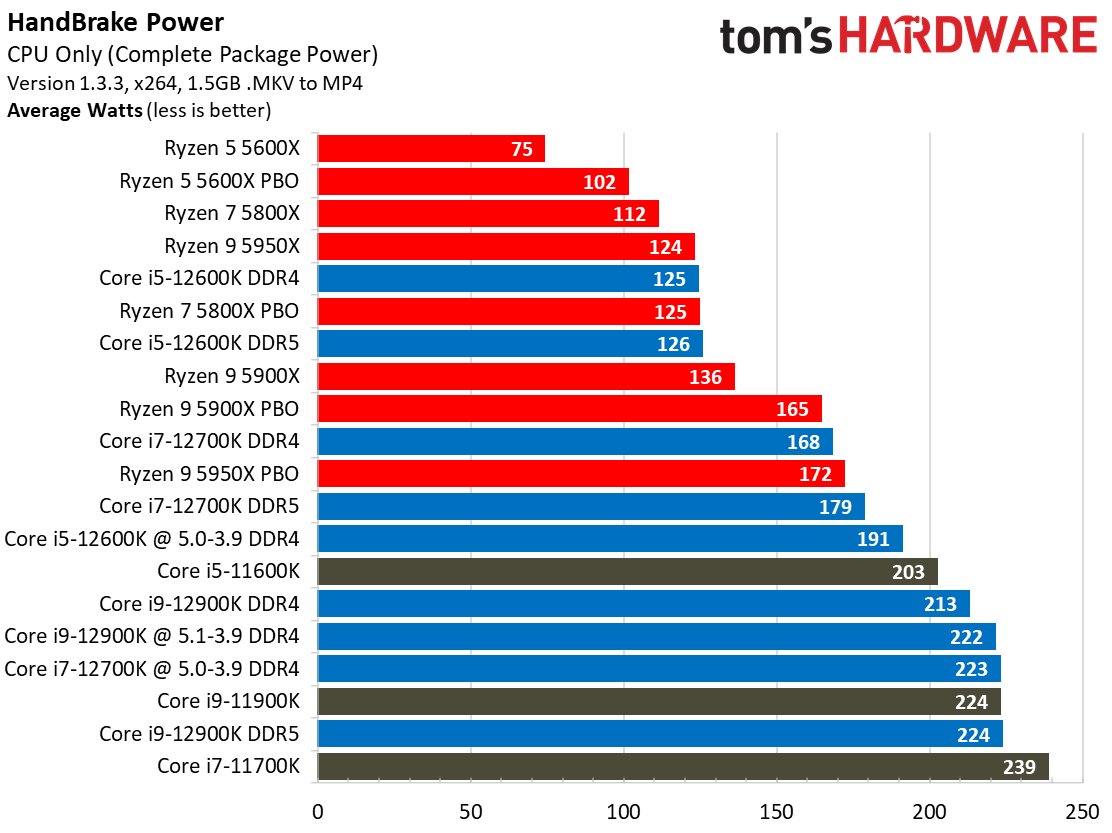
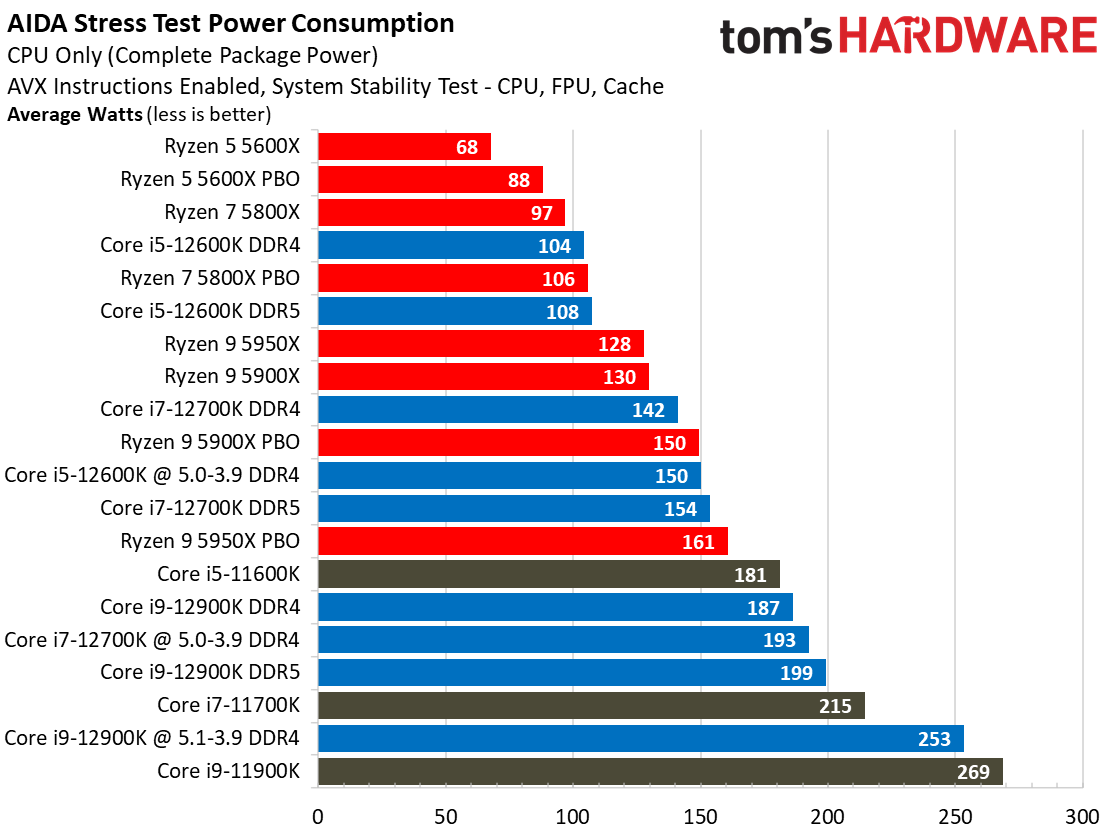
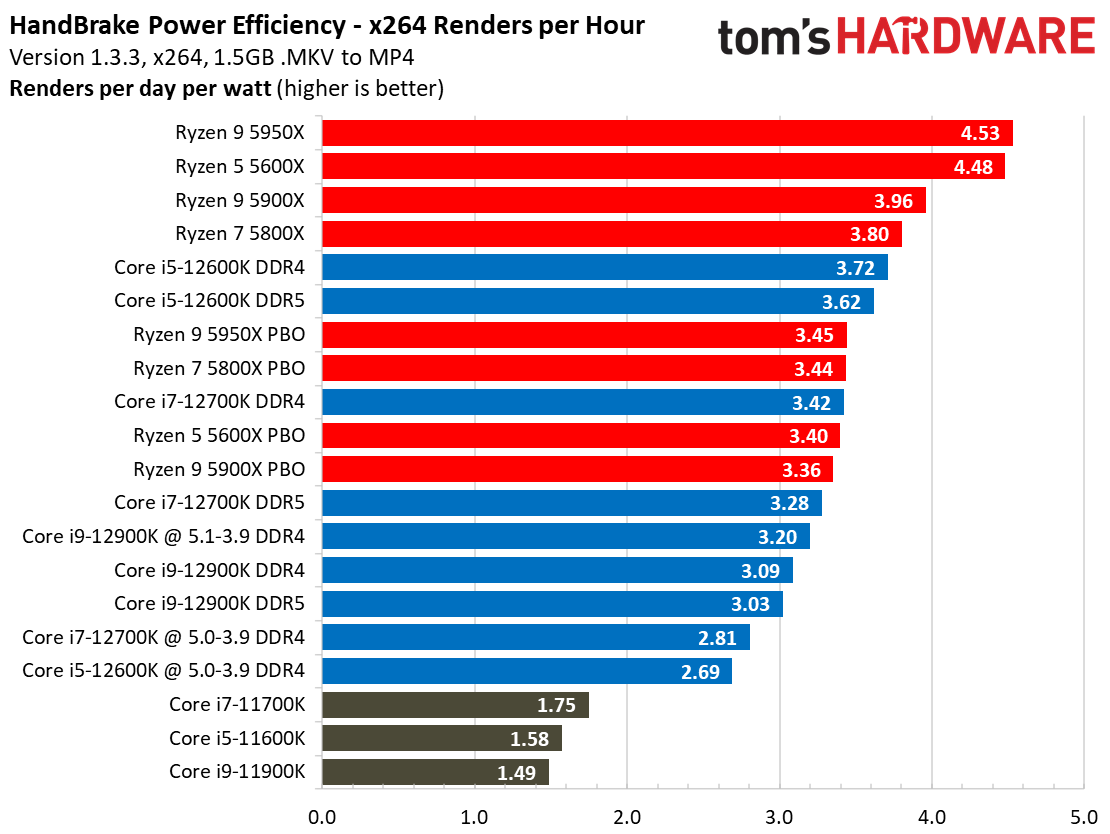
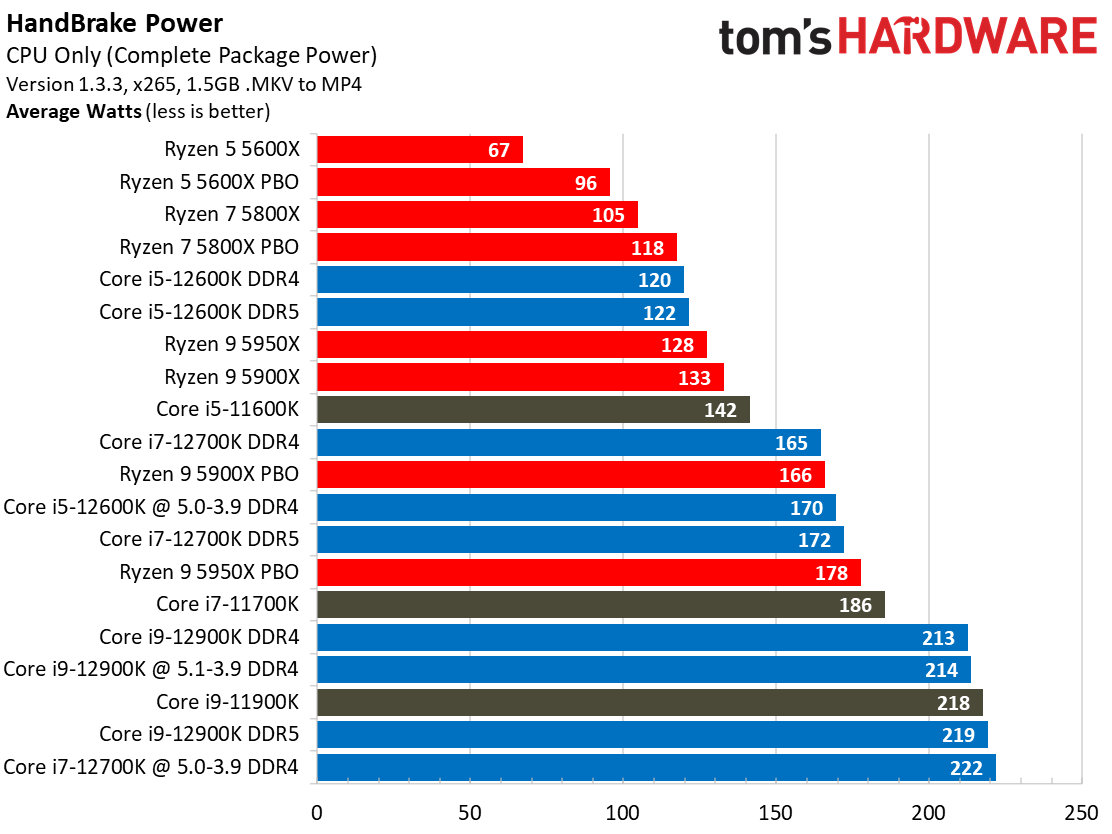
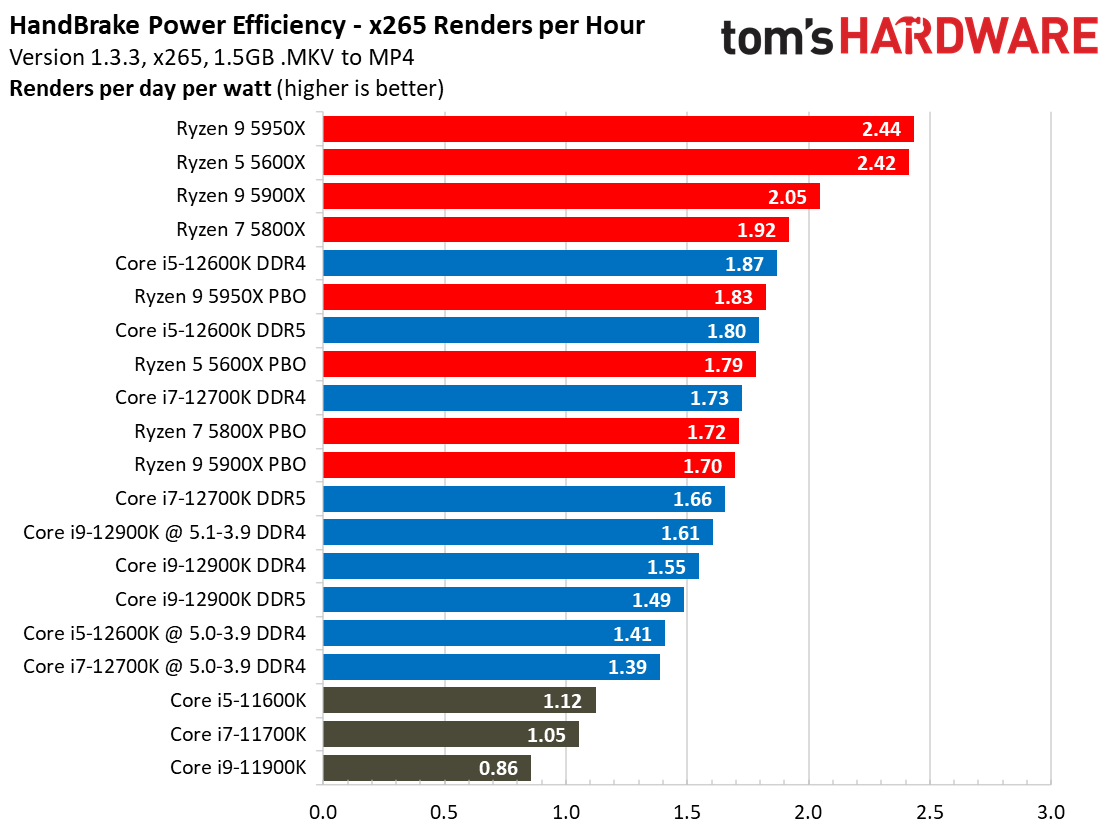
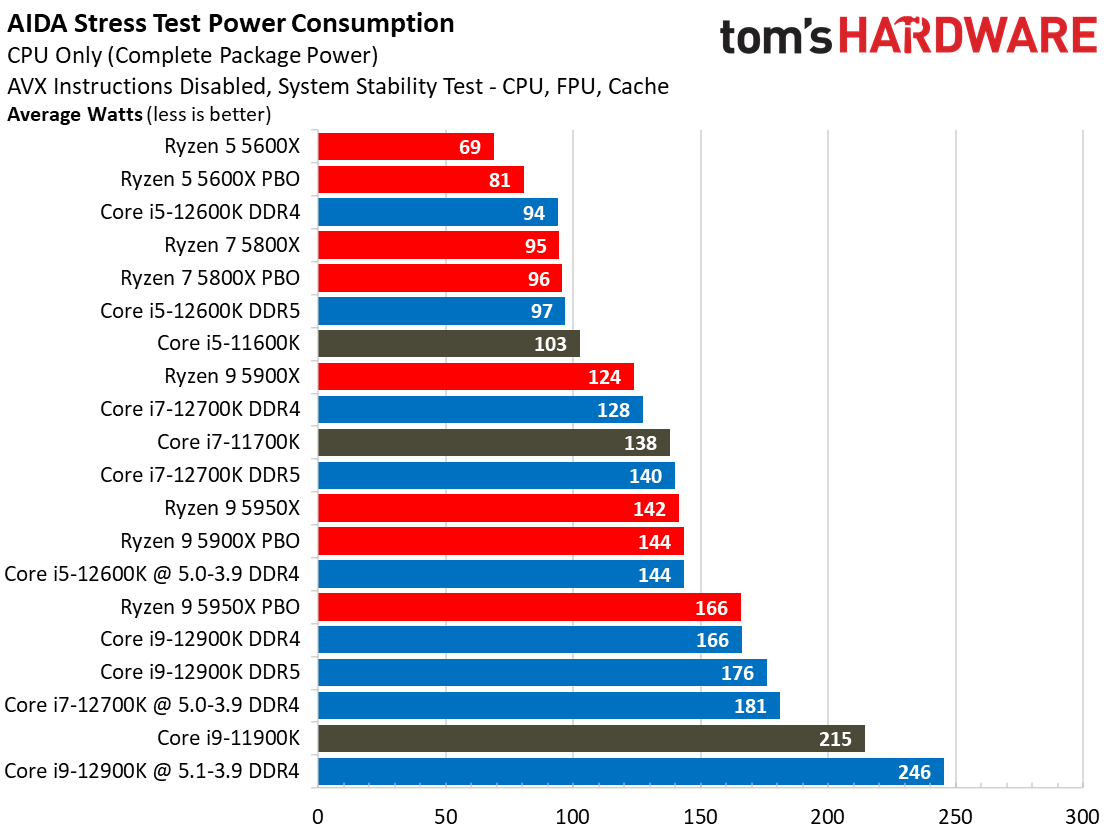
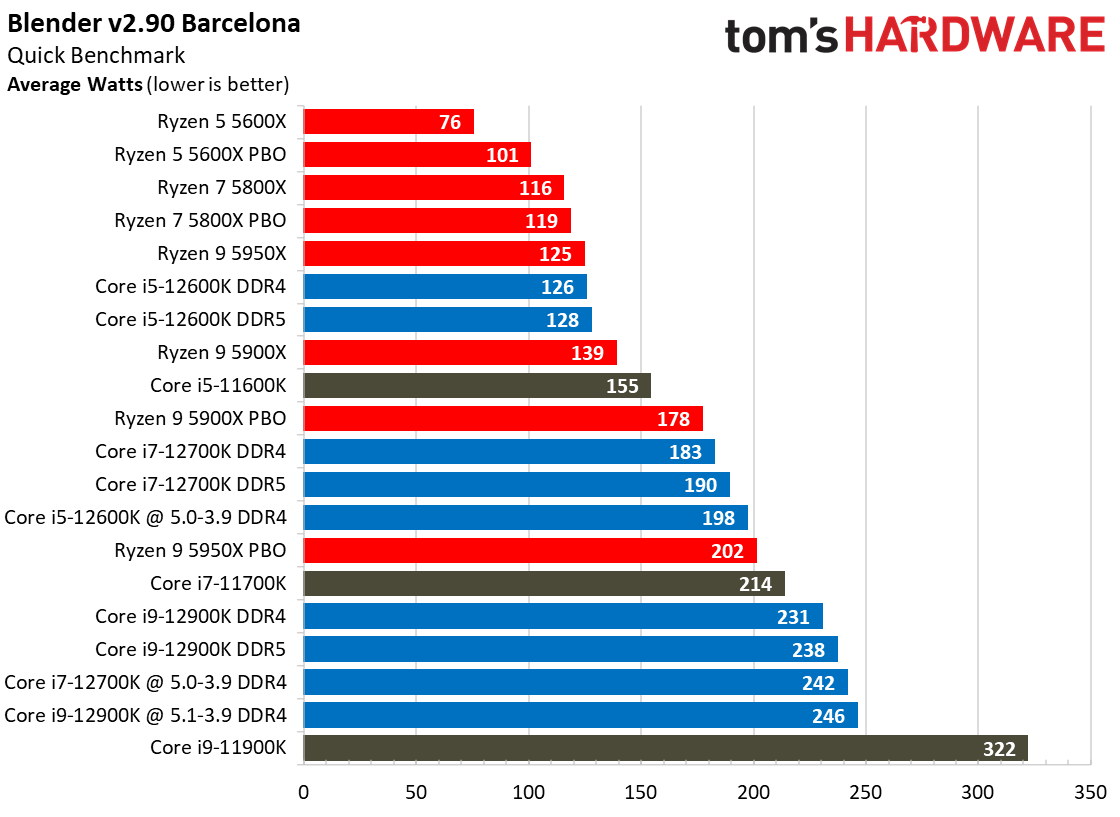
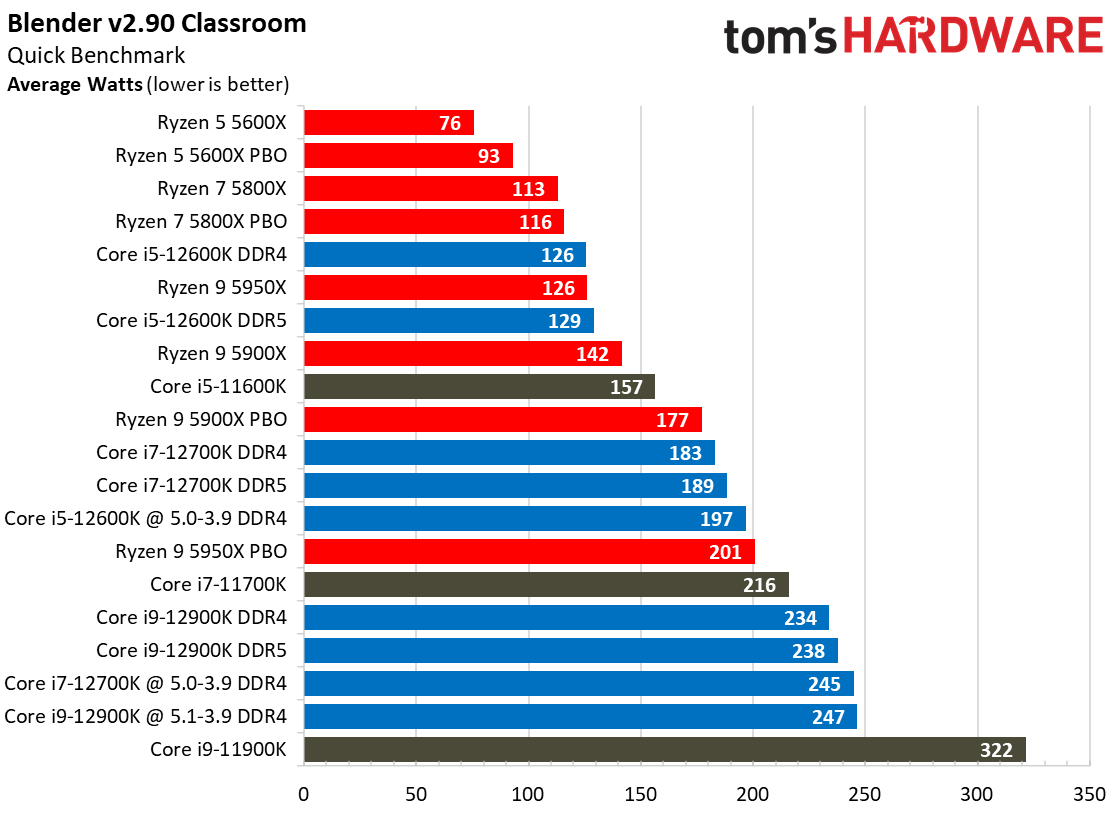
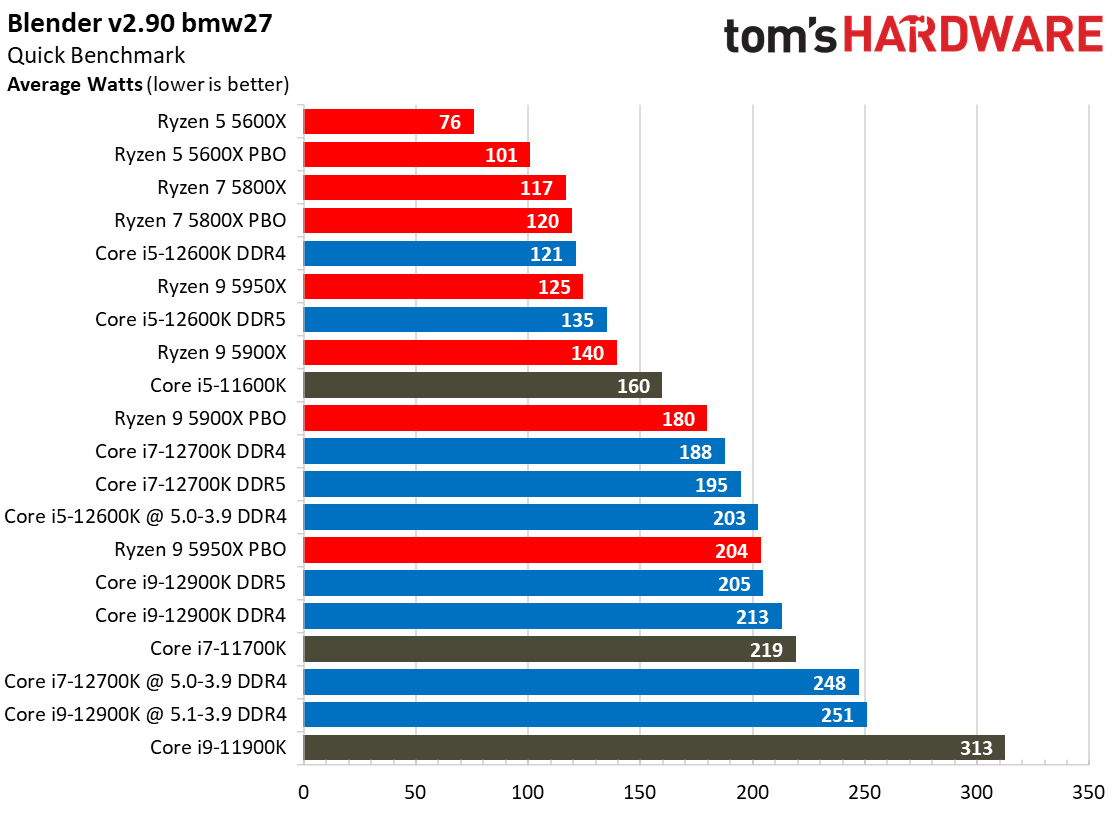
Yes, the Intel Alder Lake chips still suck more power than AMD's Ryzen 5000 series chips, but pairing the Intel 7 process with the hybrid architecture brings big improvements, particularly in threaded work.
As we can see, the Alder Lake chips consume far less power than the Rocket Lake chips. Overall, Intel has reduced its power consumption from meme-worthy to an acceptable level. Besides, Alder Lake is much faster than the previous-gen chips, earning it some forgiveness.
As you can see in our renders-per-day measurements, the Core i7-12700K can be nearly twice as efficient as the 11700K, which is commendable. This lower power consumption results in reduced cooling requirements, too.
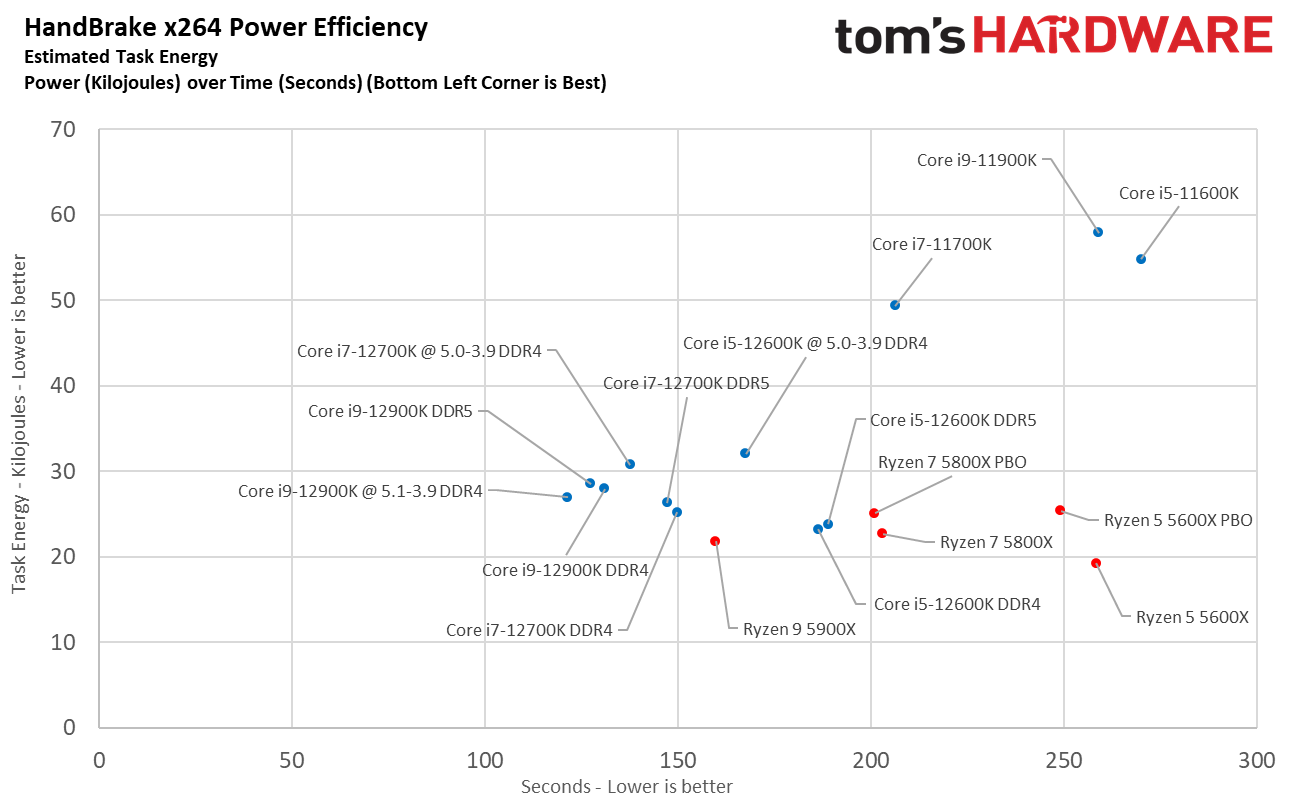
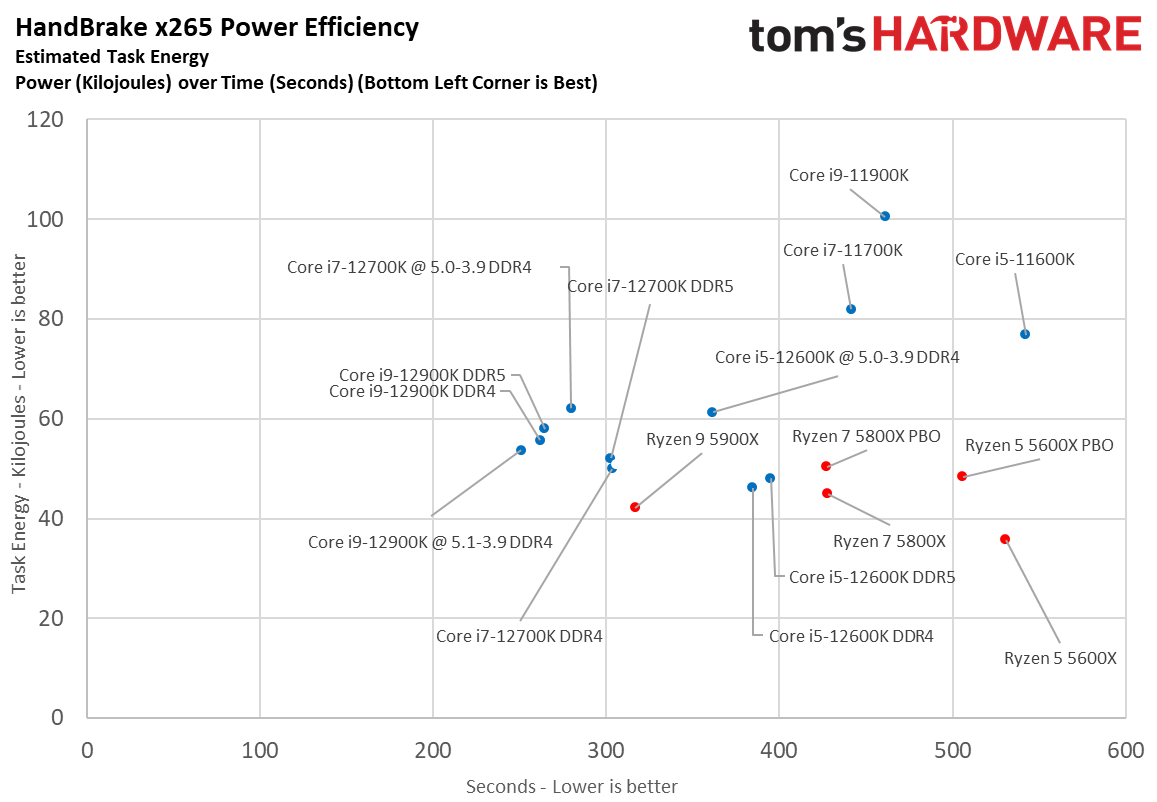
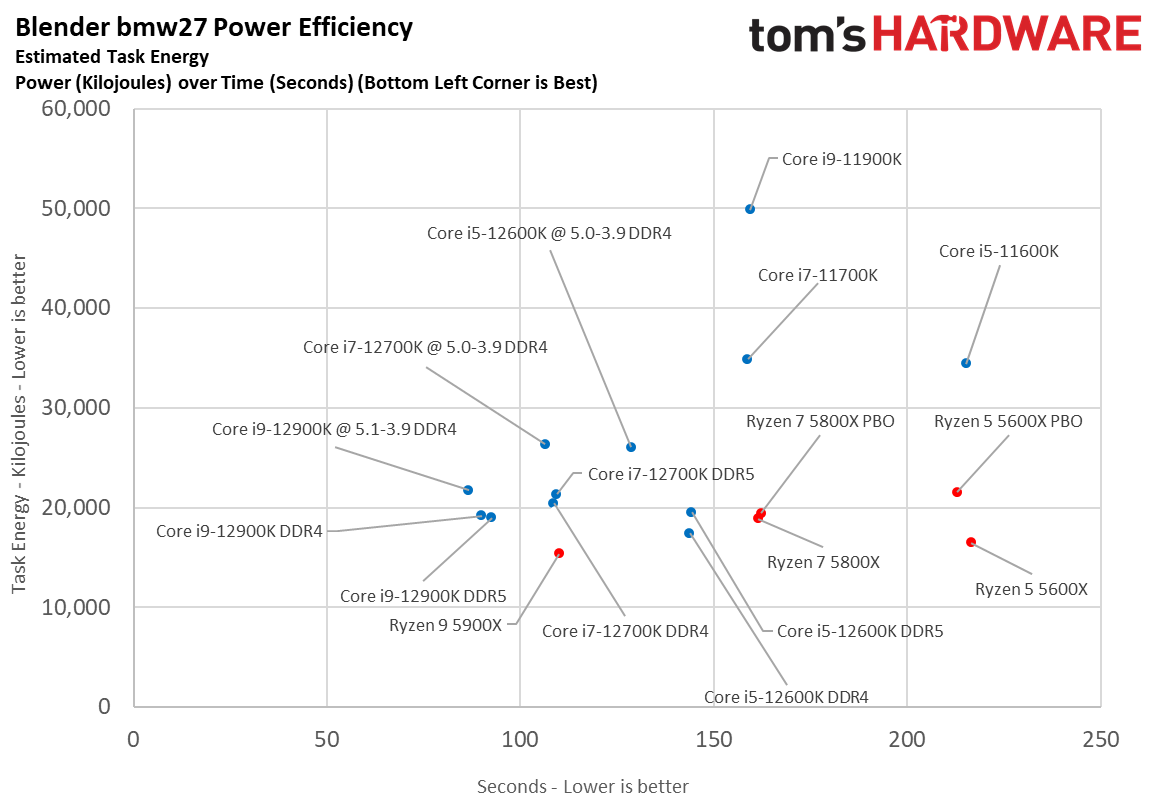
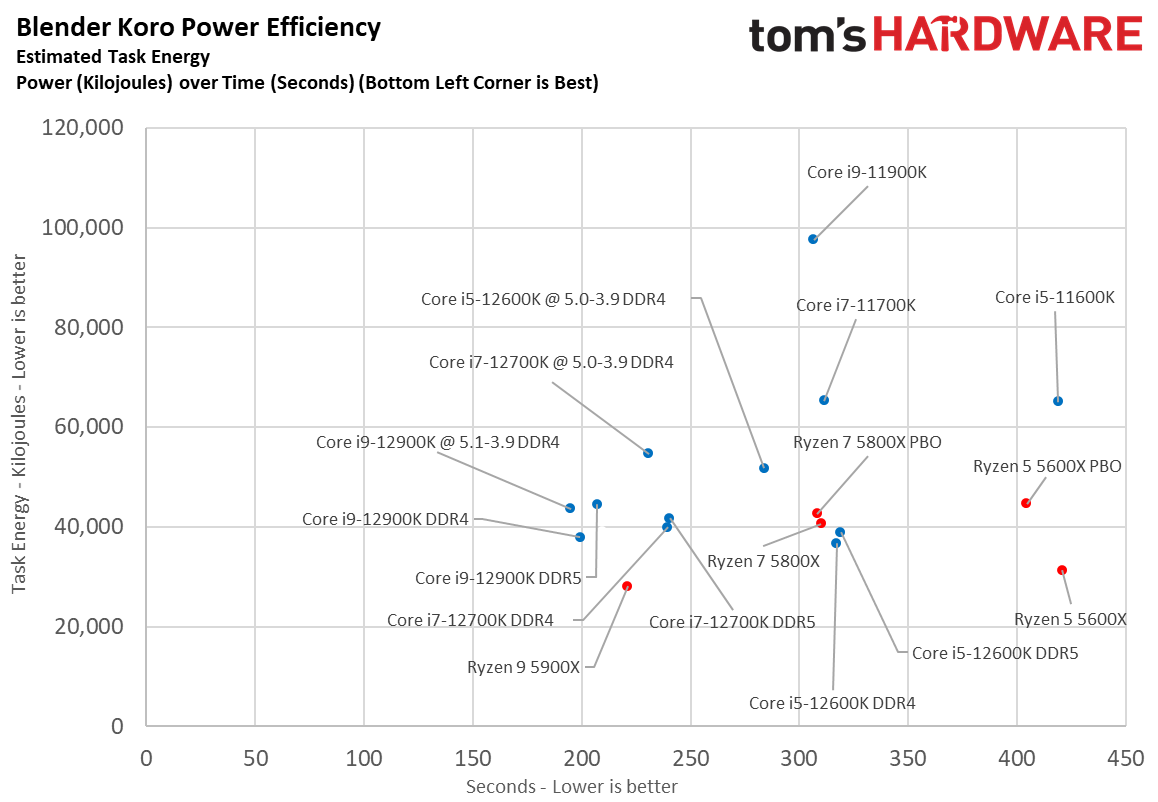
Here we take a slightly different look at power consumption by calculating the cumulative energy required to perform Blender and x264 and x265 HandBrake workloads, respectively. We plot this 'task energy' value in Kilojoules on the left side of the chart.
These workloads are comprised of a fixed amount of work, so we can plot the task energy against the time required to finish the job (bottom axis), thus generating a really useful power chart.
Bear in mind that faster compute times, and lower task energy requirements, are ideal. That means processors that fall the closest to the bottom left corner of the chart are best.
As you can see, Intel's chips have descended from the undesirable upper right of the chart down to the lower left hand, nearly matching AMD's chips in power consumption while being faster. The gap between the 11700K and the 1200K is remarkable: That's an outstanding improvement after six years of power-guzzling 14nm chips.
- MORE: Best CPUs for Gaming
- MORE: CPU Benchmark Hierarchy
- MORE: AMD vs Intel
- MORE: All CPUs Content
Get Tom's Hardware's best news and in-depth reviews, straight to your inbox.
Current page: Intel Core i7-12700K Power Consumption and Efficiency
Prev Page Core i7-12700K Overclocking, Thermals, and Test Setup Next Page Intel Core i7-12700K Gaming Benchmarks
Paul Alcorn is the Editor-in-Chief for Tom's Hardware US. He also writes news and reviews on CPUs, storage, and enterprise hardware.
-
Soaptrail I like that the summary under the graph for the games average says 12% faster than the AMD 5800 but no one is going to be using a 12700K to play at 1080p. If we go to 1440p the Intel still wins but only by 4% and even then any of these CPU's are all solid choices for gaming. I will give Intel the win but we are splitting hairs on saying it is 12% better at 1080p.Reply